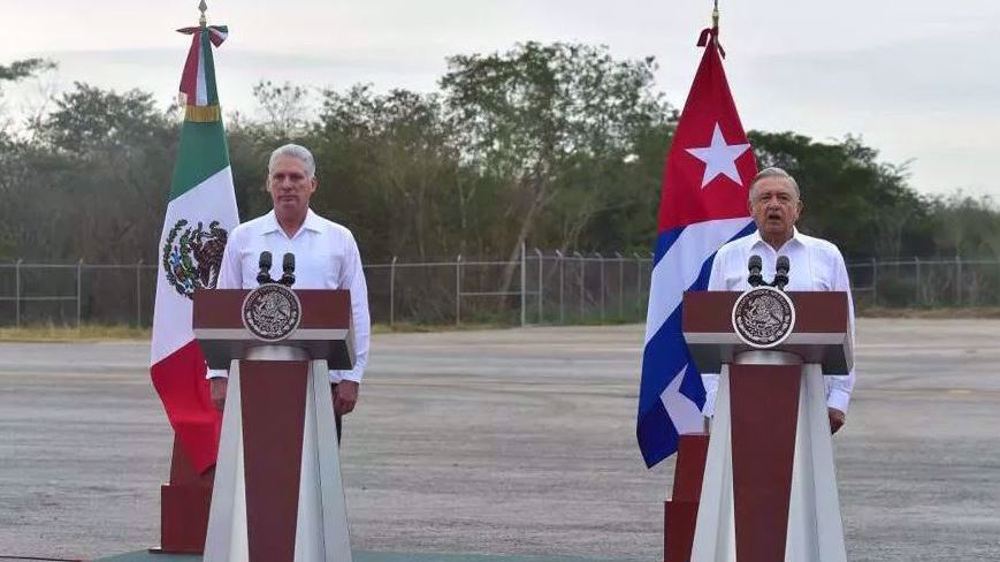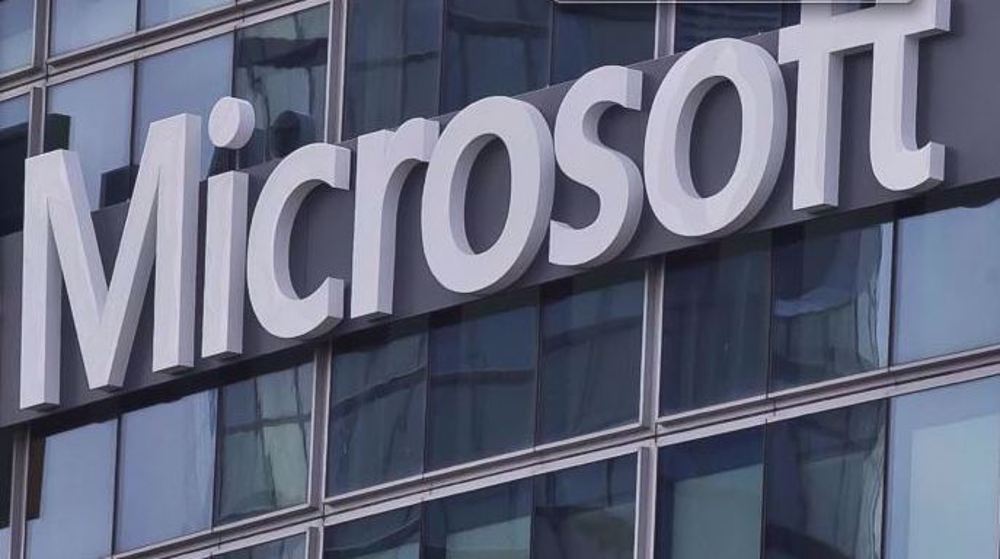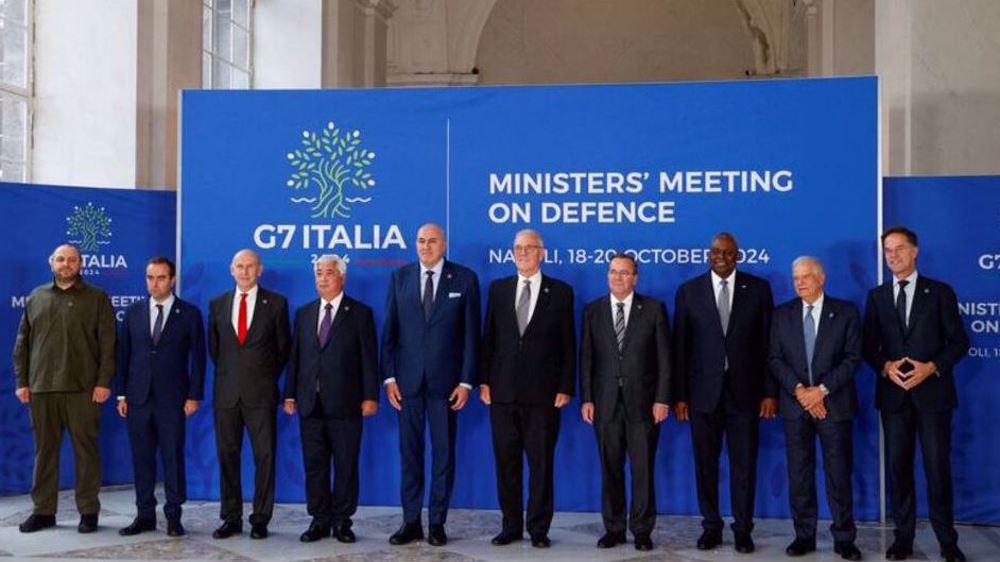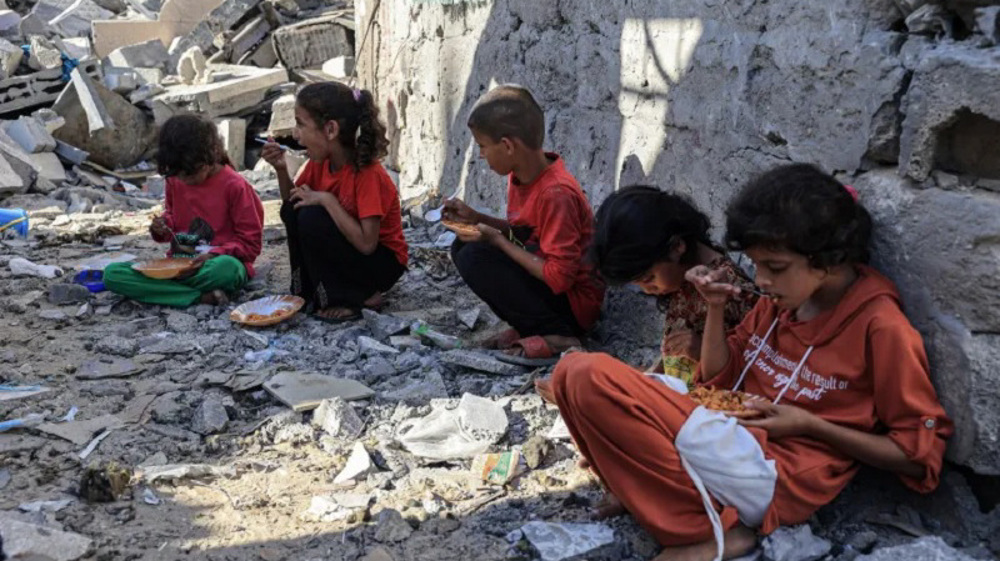Mexico will lead movement to remove US blockade of Cuba: President Obrador
Mexican President Andrés Manuel López Obrador says his country will lead a movement to defend Cuba's sovereignty and to remove the US blockade of the country, in place since the 1960s.
"We will continue to demand the lifting of the blockade from Cuba, it is inhumane... I propose to [Cuban] President Miguel Diaz-Canel that Mexico lead a more active movement, that all countries unite and that Cuba's independence and sovereignty be protected," the Mexican president said at a meeting with his Cuban counterpart, Miguel Díaz-Canel, on Saturday.
"I express with the respect that the government of the United States must, as soon as possible, lift the unfair and inhumane blockade against the people of Cuba,” he added.
“Mexico and Cuba are brotherly nations. I accompany President Andrés Manuel López Obrador at the awarding ceremony of the Aztec Eagle award to President Miguel Díaz-Canel of Cuba, in Edzná, Campeche (Mexico),” Marcelo Ebrard C., a Mexican government representative, tweeted in Spanish.
México y Cuba pueblos hermanos.Acompaño al Presidente Andrés Manuel López Obrador en la ceremonia de otorgamiento de la condecoración del Águila Azteca al Presidente Miguel Díaz Canel de Cuba ,en Edzná, Campeche . pic.twitter.com/yWVvfz8oYc
— Marcelo Ebrard C. (@m_ebrard) February 11, 2023
The US trade embargo has been in place against Cuba since 1962. It was reinforced under former US President Donald Trump. Trump’s successor has chosen to tread on the same path.
Former US President Barack Obama and then-Cuban President Raul Castro announced in December 2015 they had reached an agreement to normalize ties after 18 months of secret negotiations.
In his State of the Union address, Obama said, “In Cuba, we are ending a policy that was long past its expiration date. When what you're doing doesn't work for fifty years, it's time to try something new.”
“Our shift in Cuba policy has the potential to end a legacy of mistrust in our hemisphere; removes a phony excuse for restrictions in Cuba; stands up for democratic values; and extends the hand of friendship to the Cuban people,” he added.
Obama took certain steps to normalize ties with Cuba, but the policy was reversed by the Trump administration, which leveled 243 additional economic sanctions on Cuba, tightened travel regulations and placed the island nation back on the list of countries sponsoring terrorism.
US President Joe Biden, who initially distanced himself from his Republican predecessor, has not only retained Trump’s maximum pressure campaign on Cuba but increased the sanctions.
Several prominent lawmakers in the US Congress, specifically Republicans, have also advocated direct intervention in Cuba, to the point of suggesting bombing strikes.
'US not honest in normalizing relations with Cuba'
The United States is not honest in normalizing relations with the revolutionary government of Cuba and lifting the economic embargo of the Latin American nation, according to an American writer and political analyst.
Commenting on the Obama administration's efforts to normalize ties with Cuba, Daniel Patrick Welch said, "The United States has no intentions of ending the Cold War in any form whatsoever. It’s ramping it up, and restarting the Cold War 2.0 all around the world, and that includes Latin America."
"The overthrow of the government in Honduras was a US coup, the attempt to overthrow governments in Venezuela is a US-sponsored attempted coup, meddling with the government in Brazil was an attempted US coup," added Welch, a Boston-based political commentator.
The United States broke off diplomatic relations with Cuba in 1961 and placed an official embargo against the country in 1962.
The two countries became ideological foes soon after the 1959 revolution that brought Fidel Castro to power and their ties remained hostile even after the end of the Cold War.
The US Congress has been a major opponent of the normalization of ties as well as the embargo lift.
Russian court orders Google to pay staggering fine of $20 decillion
Yemeni forces carried out five operations in Haifa, targeting six ships, in one year: Report
VIDEO | US-Israeli war on West Asia
Israeli war machine fails to penetrate Lebanon despite barbaric bombardment: Houthi
VIDEO | Is West's dominance over?
VIDEO | Five Syrians killed in Israeli airstrikes on al-Qusayr near Homs
VIDEO | South African resistance leaders reflect on ways to overcome Israeli aggression
VIDEO | Press TV's news headlines










 This makes it easy to access the Press TV website
This makes it easy to access the Press TV website